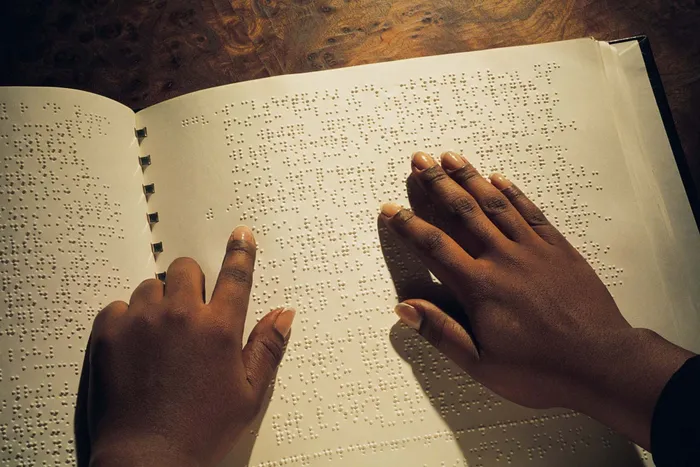South African Library for the Blind removes race from membership form

The South African Library for the Blind (SALB) has removed the requirement for race identification in its membership form.
Image: File
THE South African Library for the Blind (SALB) has removed the requirement for race identification in its membership form following mounting pressure by People Against Race Classification (Parc).
Parc, which also advocates for the rights of blind and visually impaired individuals, has two blind members in its organisation.
When its founder, Glen Snyman attempted to register with the SALB, he was surprised to find that the form required applicants to indicate their race.
This requirement, Snyman said he found both unnecessary and discriminatory in a context where all users are already marginalised by disability. This prompted him to write to the institution in a move for change.
“It has come to our attention that the current registration process requires applicants to disclose their race in order to access the services provided by your institution. We submit that this practice raises significant legal, ethical, and practical concerns. The Population Registration Act of 1950, which institutionalised race classification, was repealed by the South African Parliament through the Population Registration Repeal Act of 1991.
"This legislation prohibits the use of traditional, apartheid, racial categories on official forms. Furthermore, many blind and visually impaired individuals are unable to self-identify their race in a visual or physical sense. Requiring such identification may compel reliance on third parties or subjective assumptions, which can be inaccurate, disempowering, unethical, and discriminatory,” a June 17, letter read.
Snyman at the time gave the SALB 10 working days to respond to the letter request, threatening to approach the South African Human Rights Commission to escalate the matter if necessary.

People Against Race Classification (Parc) founder, Glen Snyman.
Image: Supplied
However a day later, the SALB responded and agreed to remove race criteria from its registration form immediately.
“Its placement on the registration process was never meant for discriminatory purposes but to ensure alignment of the SALB registration process to the blind community national statistics. It was also informed by queries and questions the entity gets on user categories,” said SALB chief executive, Dr Pateka Ntshuntshe-Matshaya.
Snyman welcomed the decision, as “ meaningful victory” in PARC’s ongoing campaign against racial classification in public institutions and services.
“We welcome this swift and thoughtful decision by the SALB,” said Snyman.
“It is encouraging to see institutions respond positively when challenged on outdated and unnecessary practices. We thank the SALB for their cooperation and commitment to equality.”
Approached for further comment on the matter on Thursday, SALB spokesperson, Vusumzi Mkhetshane confirmed, “ the revised Membership Form race has been totally removed”. An attachment of the revised form also confirmed the section had been removed.
Mkhetshane reiterated the chief’s executive’s sentiments that “its placement on the registration process was never meant for discriminatory purposes but to ensure alignment of the SALB registration process to the blind community national statistics”.
Blind SA chief executive Jace Nair said irrespective of race, all people who are blind or partially blind require services of support.
“ It is unfortunate because of legislation and policy we have to report on our statistics in terms of the beneficiaries we serve. In order to acquire our BBBEE certificate that's the only reason. We keep track of beneficiaries' race but we do not use it in any way to deny or prevent or limit service for persons of different racial groups.
Nair said the only factor that limited their work was financial support.
“We can only offer services to the extent that we have financial support,” he added.
Cape Times